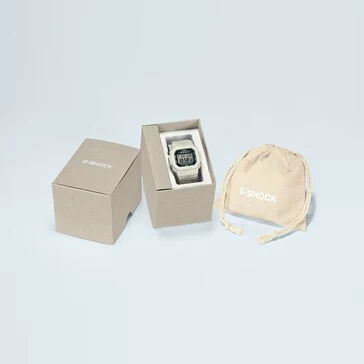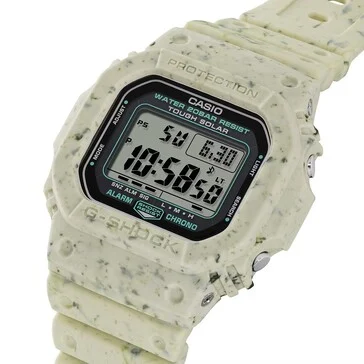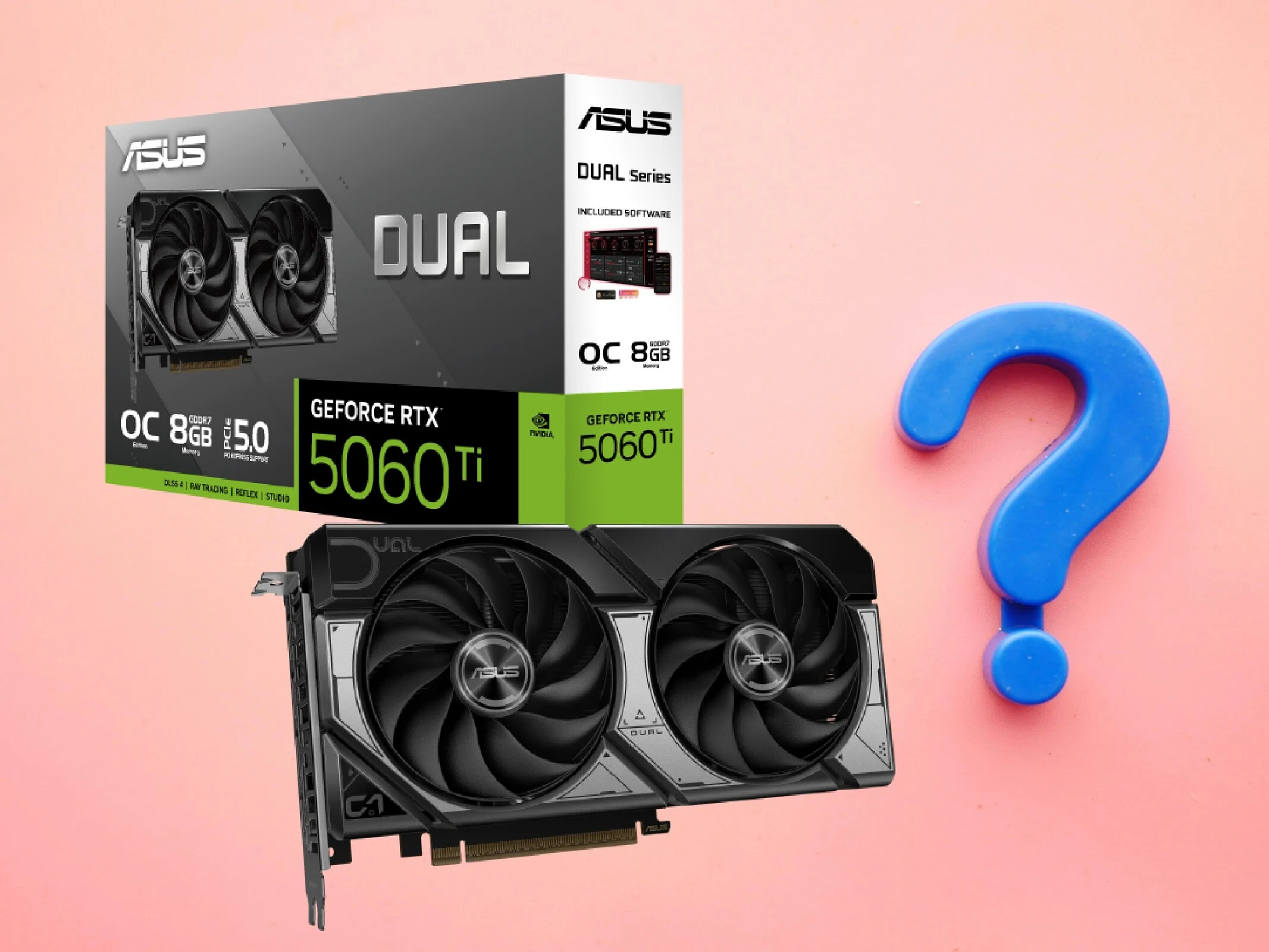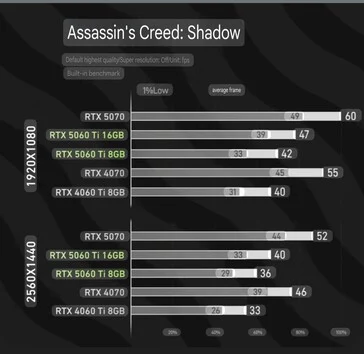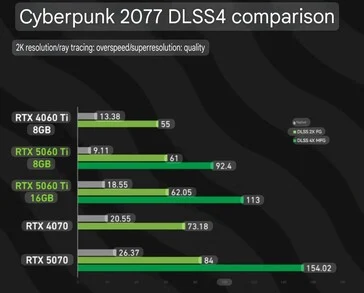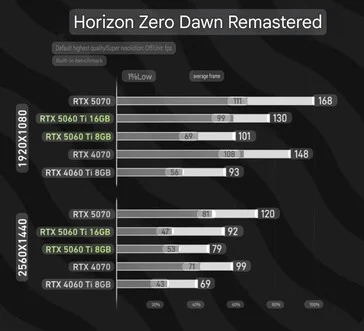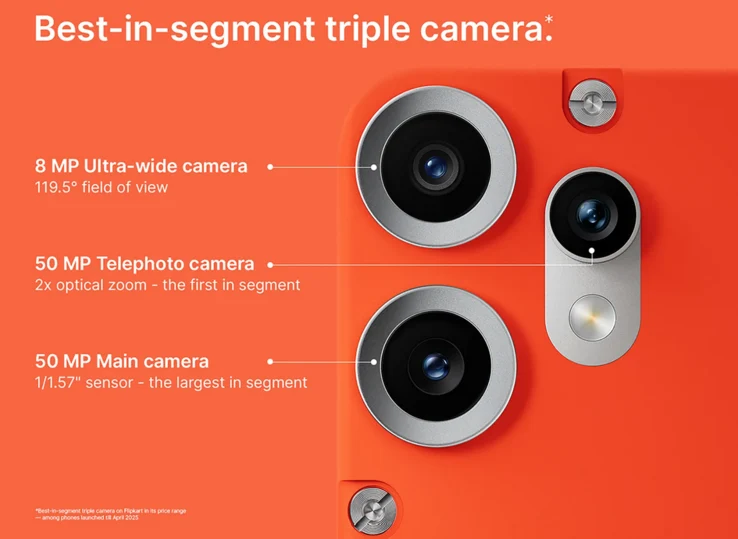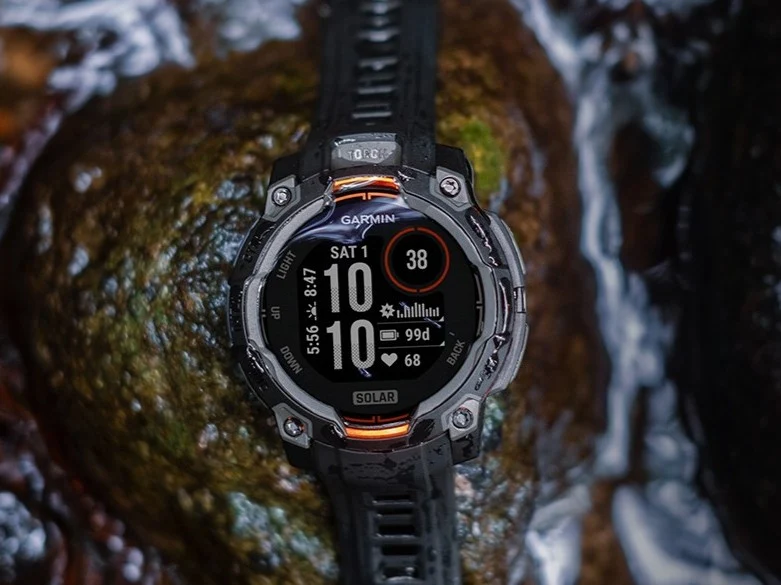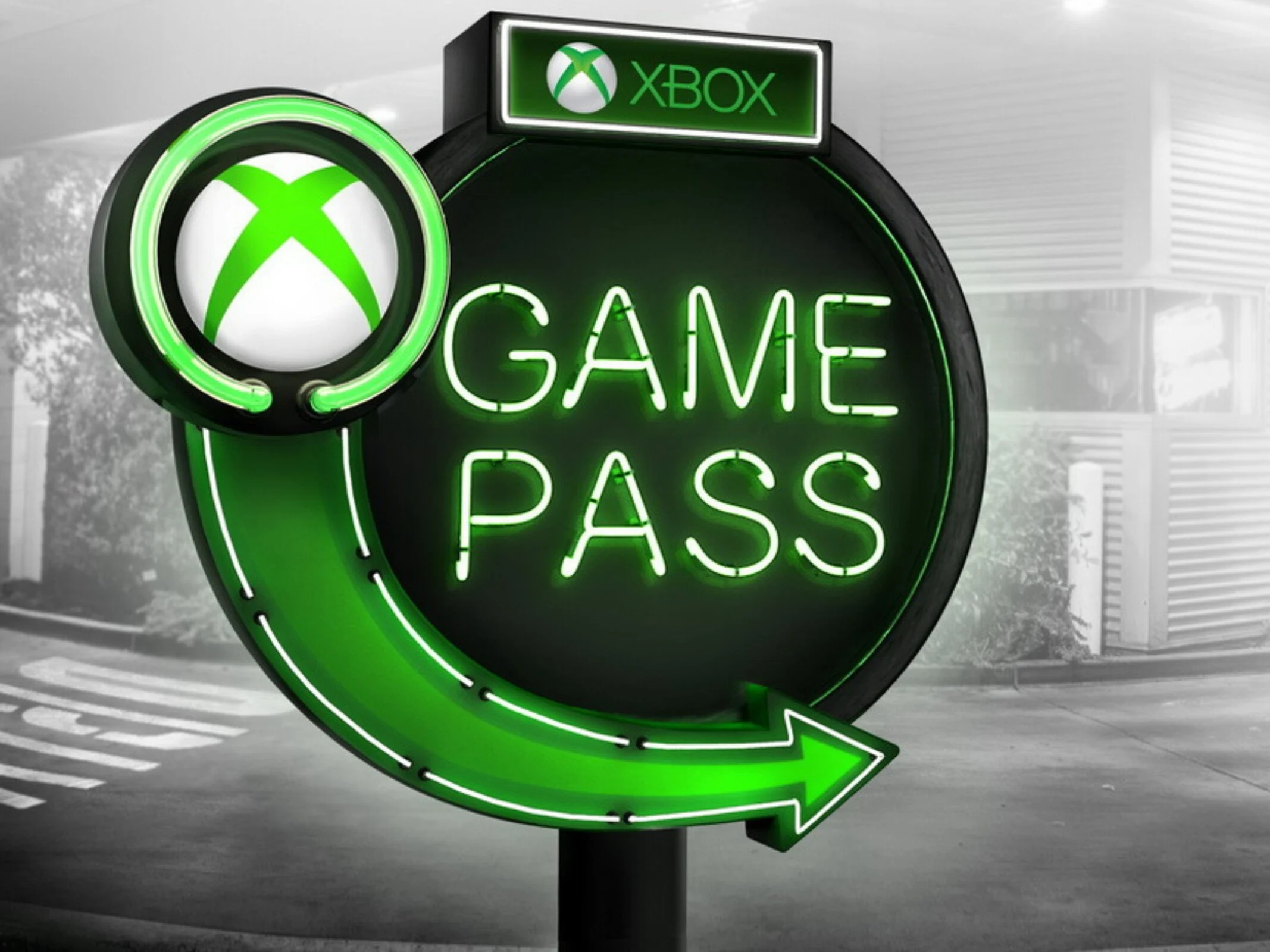Key Takeaways
1. Insufficient VRAM: The RTX 5060 Ti 8 GB is criticized for having only 8 GB of VRAM, making it difficult to justify its price over $300 in 2025.
2. Lack of Reviews: There are few reviews available for the RTX 5060 Ti 8 GB, with major tech reviewers also not covering it extensively.
3. Performance Discrepancies: Tests show that the RTX 5060 Ti 8 GB performs significantly worse than its 16 GB counterpart, especially in demanding games and scenarios.
4. Frame Generation Limitations: The RTX 5060 Ti 8 GB struggles with 4x Frame Generation, leading to lower performance compared to the 16 GB version, particularly in VRAM-intensive scenarios.
5. Suitable for Less Demanding Games: While it may perform adequately in less demanding games, the RTX 5060 Ti 8 GB falls short in newer titles that require more VRAM, mirroring trends from previous generations.
The RTX 5060 Ti 8 GB is found lacking in various ways. It’s hard to justify a GPU priced over $300 with only 8 GB of VRAM in 2025. Additionally, there’s a lack of reviews for the RTX 5060 Ti 8 GB, not just from us but also from well-known tech reviewers like Linus Tech Tips and Hardware Unboxed.
Lack of Coverage
It appears that Nvidia might not want the media to talk about the RTX 5060 Ti 8 GB. What could be the reason behind this? Perhaps it’s related to how the RTX 5060 Ti 8 GB performs compared to its 16 GB counterpart.
According to some tests shared by a Chinese reviewer on bilibili, the RTX 5060 Ti 8 GB doesn’t only have half the VRAM of the RTX 5060 Ti 16 GB; it’s also shown to be slower in key situations.
Performance Comparisons
In a DLSS 4 performance test in Cyberpunk 2077, the RTX 5060 Ti 16 GB and the RTX 5060 Ti 8 GB recorded around 18.5 and 9.1 FPS, respectively, at 2K resolution with ray tracing and other settings maxed out. The DLSS was set to “Quality” with no Frame Generation applied.
When 2x Frame Generation is used, it supposedly removes this huge 200% performance gap, with the RTX 5060 Ti 8 GB and RTX 5060 Ti 16 GB hitting 61 and 62 FPS, respectively. However, the situation shifts significantly when 4x Frame Generation is introduced.
With 4x Frame Generation, the RTX 5060 Ti 16 GB outperforms the RTX 5060 Ti 8 GB by 22%, achieving frame rates of 113 compared to 92.4. This makes sense since generating three more frames for each “real” frame demands that the GPU processes more data in its VRAM.
VRAM Limitations
This means that the 4X Frame Generation, which Nvidia has been promoting heavily, seems to underperform when the VRAM is restricted to 8 GB. This raises further questions about the necessity of the RTX 5060 Ti 8 GB.
Moreover, the RTX 5060 Ti 8 GB struggles in games that require more VRAM. For instance, Horizon Zero Dawn Remastered (HZD Remastered) has official system requirements suggesting it ideally needs 16 GB of VRAM.
Given this, it’s not surprising that the RTX 5060 Ti 16 GB is about 29% faster in average FPS at 1080p and 16% faster at 1440p. What’s notable is that the 1% lows at 1080p for the RTX 5060 Ti 8 GB are 30% lower. Thus, HZD Remastered should run more smoothly on the RTX 5060 Ti 16 GB.
Suitable for Less Demanding Games
On the bright side, the RTX 5060 Ti 8 GB is likely fine for games that don’t need more than 8 GB of VRAM. For example, in Assassin’s Creed: Shadows, it performs nearly the same as the RTX 5060 Ti 16 GB. For 1080p/60 FPS, Ubisoft recommends the RTX 3060 Ti 8 GB in the official system requirements, so it’s no surprise that the game runs just as well on both the 8 GB and 16 GB versions of the RTX 5060 Ti.
In summary, the situation mirrors last generation’s trends: Games that require more VRAM will perform significantly worse on the RTX 5060 Ti 8 GB compared to the RTX 5060 Ti 16 GB. The performance gap is also present with 4x Frame Generation. It’s puzzling that mid-range cards with only 8 GB of VRAM still exist in 2025, especially since the newest AAA titles are very demanding and upcoming games are expected to follow suit.
Source:
Link



